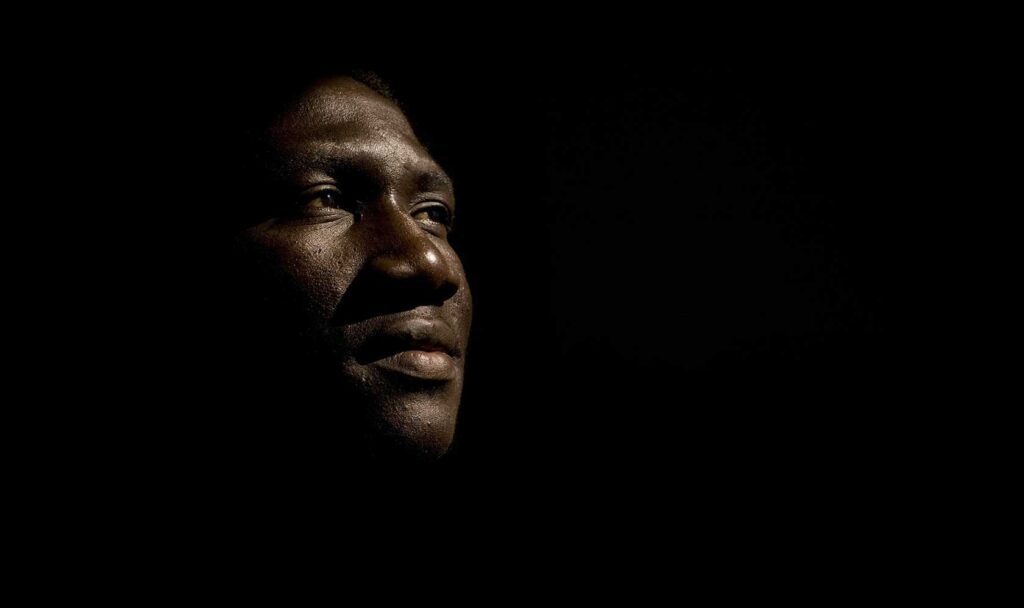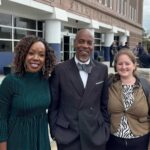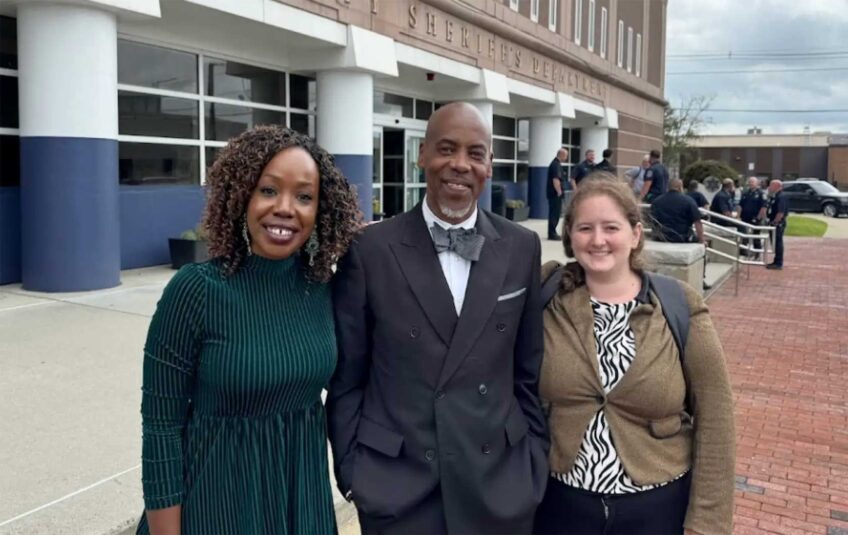New health equity effort aims to increase access to mental health services for Black men

A new initiative from the Urban League of Eastern Massachusetts aims to increase access to mental health services for Black men, a group often left out of behavioral healthcare.
The effort, a partnership between the Urban League and William James College, is pushing for greater access now, while also looking to expand opportunities — both for care and economic advancement — by training more Black men for jobs in the field.
“When we think about economic issues, there’s the saying, ‘health is wealth,’ and a significant part of health is mental health,” said Rahsaan Hall, president of the Urban League of Eastern Massachusetts.
When the initiative was announced July 18, the Urban League launched a directory of mental health services and resources with a focus on communities of color. The initiative will also work to identify up to 10 candidates for programs at William James College.
Hall said the partnership with Williams James College made obvious sense for the program, given its history of working with students of color and including focuses in its clinical psychology program on care for six different specific marginalized groups, including African and Caribbean.
“For me, the excitement is having a partner like this to do this work in a serious way, and a partner with a proven track record of serving the communities with some of the highest needs,” he said.
Williams James College, too, is excited about the opportunity to expand the work, said Marc Abelard, director of strategic partnerships at the college’s Center for Workforce Development.
“It just seemed like a match made in heaven,” Abelard said. “It was really closely aligned to our own mission at the college, serving underserved populations.”
The program aims to reduce barriers in a field of care that often sees limited participation from communities of color. Cultural taboo limits participation in seeking mental health care, and high costs can further limit access.
According to data from TherapyDen, a national therapists directory, in Boston, the median out-of-pocket cost for a session is $200, one of the highest in the country. Health insurance plans often cover mental health care, but exactly what that coverage looks like can vary and the uninsured rates among Black and Hispanic individuals across the country, while declining, are still higher than their white counterparts.
And, if successful, it will take strides in a field that, in the United States, fails to match the demographics of the population it serves. According to the U.S. Bureau of Labor Statistics, in 2023, about 85% of psychologists were white. Only about 7% were Black.=+
According to the American Psychiatric Association, only 2% of psychiatrists in the United States — mental health providers who are certified doctors and can prescribe medicine — are Black, even as Black residents are 20% more likely than the general population to experience serious mental health problems, potentially due to a hesitance to seek care.
“What happens to the various cultures and ethnicities in the population that may want a provider that looks like them, that represents the community that speaks their own language and that understands their culture?” Abelard said. “It’s really important to have representation in that space.”
It’s an effort that might seem to fall outside the wheelhouse of the Urban League, but Hall said efforts around health equity are important to improving the quality of life in Black communities generally.
“I think there may be some folks who say, ‘the Urban League is an economic development organization, a civil rights organization, why are they doing mental health work or health equity?’ but it’s all tied together,” he said. “The health and vitality of the community is deeply intertwined with the political infrastructure that surrounds it, and this country does better when institutions in both the public and private sector are more representative of the country and a critical component of that is making sure that people have good mental health.”
The program is still in its initial stages, and Hall said the Urban League and William James College are still working to build out the resource list and filling in the staffing components of the initiative.
That work will include looking to hire someone on the Urban League side of the partnership to do outreach to different groups who may be working in or around mental health subjects already.
“Oftentimes, there are people who are doing behavioral health work but don’t necessarily recognize it as that,” Hall said. “If they can be credentialed, either through a certificate program or a degree program, that has the potential of not only increasing the number of behavioral health professionals of color, but individually impacting their financial status by bringing them into the profession.”
It also marks the first step of a broader health equity push the Urban League of Eastern Massachusetts is working on, which Hall said will include work around diversity in clinical trials and developing a nursing pipeline apprenticeship program. That initiative is still in its early stages and is being funded by a grant offered by Takeda Pharmaceuticals.
In an emailed statement, Chris Reddick, vice president and head of U.S. health equity at Takeda, said through efforts like the one from the Urban League, the pharmaceutical company hopes to improve the healthcare system overall.
“This initiative takes a unique, multi-faceted approach to action on this commitment — by improving access to mental health services, creating educational pathways for more representatives of BIPOC communities to enter and influence the field of healthcare and expanding representation in clinical trials,” he wrote. “Through these types of partnerships, we aim to build a more just and equitable healthcare system.”
Hall said that the idea of connecting Black men to existing mental health services isn’t necessarily novel, but through the partnership he hopes that the Urban League and William James College can expand what opportunities exist.
“People are working on this, but the need is big enough that the Urban League coming in with William James — given both of our respective institutions’ work, history, reputation — is adding to the broader landscape of people who are trying to address this serious concern,” he said.






